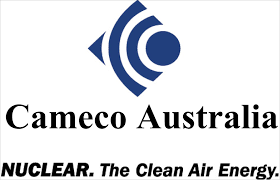Published on Thursday December 08 2011 (AEST)

Challenges in sourcing funds for new mining projects, interruptions in both new and ongoing mine production, as well as the conclusion of the Highly Enriched Uranium agreement are near-perfect ingredients for a shortage of uranium in the very near future, a top producer warns.
Tim Gitzel, Chief Executive Officer of Cameco Corp., the world's largest uranium producer, said the problem lies more on the way investors and producers make their calculations.
"They take every possible project, think it's going to operate to perfection, and add it up and say 'there's lots of supply,'" Gitzel said. "It's easier said than done."
Gitzel argued that investors, traders, analysts and critics concentrate too much on a "post-Fukushima attitude."
"People don't focus so much on the supply side," he said.
Prices of uranium, a radioactive heavy metal used as an abundant source of nuclear energy, have tumbled 24 per cent since the March 2011 magnitude-9 earthquake and tsunami that hit Japan that caused a partial meltdown at Tokyo Electric Power Co.'s Fukushima Dai-Ichi nuclear plant.
The crisis at Fukushima led nations to pause and re-evaluate existing as well as future nuclear programs. Germany, for one, announced it will terminate its nuclear reactors by 2022.
The Japan nuclear disaster, coupled with Germany's declaration, prompted Cameco in August to slash its full-year global uranium demand estimate to 175 million pounds (79,400 metric tons) from 180 million pounds.
Data from the World Nuclear Association showed global mined uranium supply reached 53,663 tons in 2010, but is still insufficient to meet global demand. As a result, some utilities have been utilizing recovered fuel from Russian warheads as contained under the HEU agreement.
But now Russia has declared it will withdraw from the HEU accord by the end of 2013, all the more constricting world supply. Russia's pronouncement will remove 24 million pounds from present global supply. The HEU agreement has been in effect since the 1990s.
In 2010, Cameco yielded 22.8 million pounds of U3O8 - a tradable form of uranium. It has plans to raise annual output to 40 million pounds by 2018.
 Australian Uranium News - Research
Australian Uranium News - Research


No comments:
Post a Comment